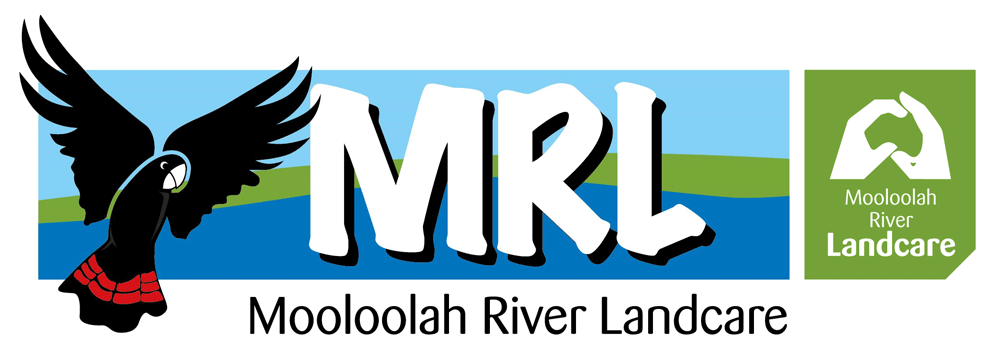Bug Club
So what is the background behind MRL's popular Bug Club and The Bug Day Out?
Bug Club, The Bug Day Out, and in fact most of MRL’s insect/invertebrate focused program over the last 3 years are a result of three rounds of Engaging Science grants from the Queensland Government’s Office of Chief Scientist, as well as funding from Unity Water and the Sunshine Coast Council through their Environmental Levy Program.
2021-22 The first year our ‘Bugs to the Rescue’ program focused on raising the profile on the importance of invertebrates (insects and other small animals without backbones) in our environment through a series of interactive presentations and activities delivered to local schools and also a series of community field practicums. Through the year we explored the important roles that insects play in the ecosystem, how we can work with insects to enhance the health of our environment and also showcased people who work with or study insects (entomologists) to draw attention to interesting stem career pathways. At the end of the year we wanted to celebrate all the amazing entomologists we had worked with, the students and community members who were involved in the program and celebrate the amazing world of insects and this became the first Bug Day Out!
2022-23: The following year we expanded our program to ‘Bugs to Rescue…and Rescuing Bugs’. This year our program focused on highlighting not only the importance of invertebrates and what we can learn from them, but also demonstrating how we can help them by restoring and enhancing habitat. We continued our interactive presentations and community field practicums and showcased ways that everyone could help their local invertebrates by planting native plants and creating invertebrate friendly/focused gardens. This included the creation of a demonstration butterfly garden at MRL’s biocontrol facility. We also began our citizen science group, Bug Club, to foster a community of insect enthusiasts who enjoy getting in the field and collecting data on local invertebrates. With such an ecologically rich ‘backyard’ to explore Bug Club has conducted numerous community field excursions to collect data and learn about invertebrate populations in a wide range of different habitat zones around the Sunshine coast. After the success of the first Bug Day Out we decided to host another one showcasing the butterfly garden, the Bug Club, inspiring local entomologists and a range of interactive family fun activities to celebrate insects on the Sunshine Coast.
2023-24: The third year of funding ‘(Even More) Bugs to the Rescue…and Rescuing Bugs,’ allowed us to continue the previous two years of program and expand our Bug Club activities to include a collaborative citizen science backed study with an Entomologist to learn about key pollinators in the Mooloolah River National Park. this study was called The UFO Identification team- Native Bee Study. You can read the results of our study here.
This year also concluded with the biggest Bug Day Out so far with a huge array of interactive activities, an insect art exhibition, a presentation of our native bee study findings, and of course, our superstar entomologists!
Check out our Bug Club and Identifying UFO’s iNaturalist projects here!






Enabling community involvement in citizen science
Bug Club (the interactive, field based leg of this program) has enabled hundreds of people in our community to get out in nature with other invertebrate enthusiasts for meaningful interactions and explorations of our natural world. During the course of the program we have:
- Looked at water bugs and demonstrated how our community can monitor macroinvertebrates in our waterways to get a snapshot of the health of our river systems.
- Showed how insects can help us rehabilitate the environment by giving community members a chance to visit our biocontrol facility, release and monitor beetle bioagents in the field to help control invasive weeds.
- Helped launch the Sunshine Coast Big Butterfly Count and provided opportunities for our community to learn about our local butterflies, conduct butterfly surveys and learn what to plant to increase butterfly habitat on the Sunshine Coast.
- Conducted numerous insect bioblitz activities at multiple locations and habitats.
- Trained many people in the community to use open source platforms (iNaturalist and Biocollect) to collect data about insects both during our activities and also in their own time.
- Encouraged deep observation skills and meaningful nature interactions by encouraging and providing training in nature and scientific journaling techniques.
- Provided many opportunities for the community to interact with field scientists and even help with real scientific studies such as our UFO Identification Team- Native Bee Study.
- Explored insects up close with special microscope study days.
- Studied and collected data on nighttime insects through our Mothlight Nights and UV Adventures.
- Explored marine invertebrates at our popular rockpool exploration activities (both day and night).
- And most importantly, hopefully: raised the profile of invertebrates on the Sunshine Coast, created a connected and caring community of insect enthusiasts and citizen scientists and inspired the younger generation to consider STEM career pathways by offering numerous opportunities to meet and interact with field scientists, entomologists and people working with insects to make the world a better place.
2024-25? At this stage we are not sure what this next year will look like. Of course, we hope to keep the momentum going and will be looking at what funding opportunities are available to continue to offer Bug Club field excursions, invertebrate focused workshops and the Bug Day Out!
If you’re interested in being added to our Bug Club email list (be the first to know about upcoming activities), or would like to be a sponsor for our Bug Club, please contact Jessica.










